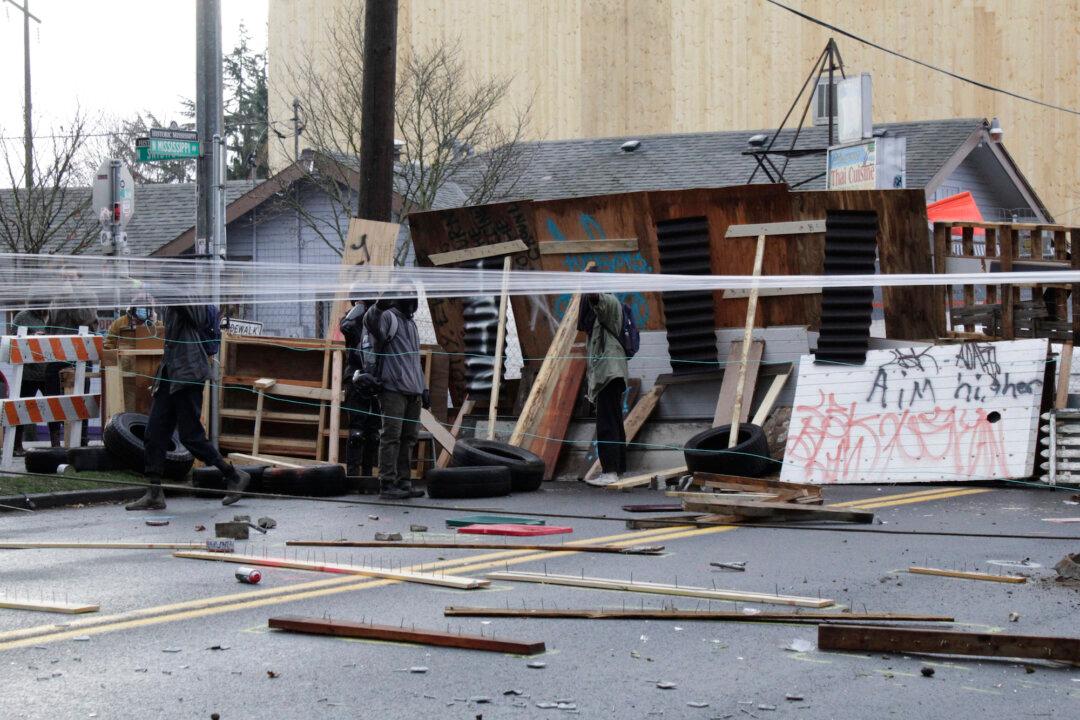Barricades were coming down Dec. 13 around a blocks-long stretch around the so-called Red House occupation zone in Portland after city authorities reached a deal allowing the family at the heart of the foreclosure and eviction dispute to remain in the house as negotiations on its future continue, according to local reports.
Mayor Ted Wheeler’s office told Oregon Live that police have agreed not to force the Kinney family to leave the house as long as barricades around the house are cleared by night on Dec 14.





